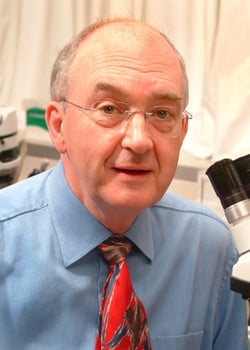 Like any living organism, cancer cells rely on fuel in order to survive and grow. Unfortunately for many, the growth of cancer cells is extremely deleterious to human health. That is why a major facet of cancer research currently involves locating and preventing the mechanism for fueling cancer cells.
Like any living organism, cancer cells rely on fuel in order to survive and grow. Unfortunately for many, the growth of cancer cells is extremely deleterious to human health. That is why a major facet of cancer research currently involves locating and preventing the mechanism for fueling cancer cells.
To this end, researchers at University of California, Los Angeles, have recently identified the mechanism by which fuel is delivered, which allows the growth of pancreatic and prostate tumors. These are among the leading causes of cancer-related deaths in the United States, and the discovery will likely be instrumental in new treatment options for the deadly diseases.
Tumors rely on glucose to survive and grow, the majority of which was already known to be delivered by passive glucose transporters, known as GLUTS. However, the study found that the process also involves sodium-dependent glucose transporters called SGLT1 and SGLT2.
Researchers from UCLA Jonsson Comprehensive Cancer Center, including Dr. Ernest Wright and co-author Dr. Jorge Barrio, focused on how SGLT1 and SGLT2 impact the growth of pancreatic and prostate tumors by mapping the distribution of SGLT1 and SGLT2, then measuring glucose uptake in separate tumors.
According to Dr. Wright, lead author and professor of physiology at UCLA, the three-year study produced findings that “further provide the first promising evidence that current sodium-based drug inhibitors and PET imaging techniques could be used to better diagnose and treat these and other forms of the disease.” (Source: ucla.edu)
“This is exciting because it provides strong evidence that SGLT2 inhibitors, such as those currently approved by the FDA to treat diseases like diabetes, could potentially block glucose uptake and reduce tumor growth and survival in pancreatic and prostate cancers,” said Wright.
